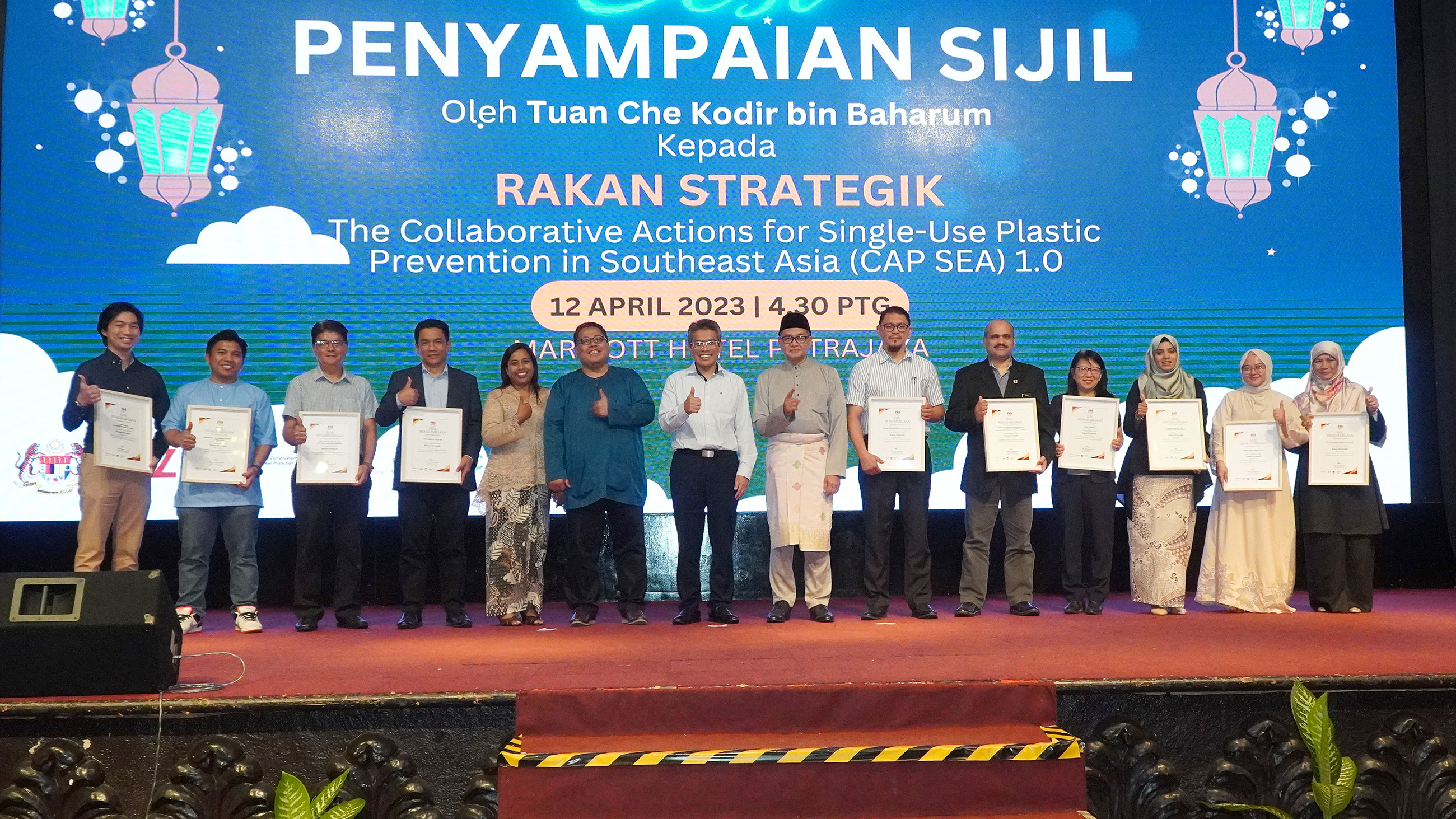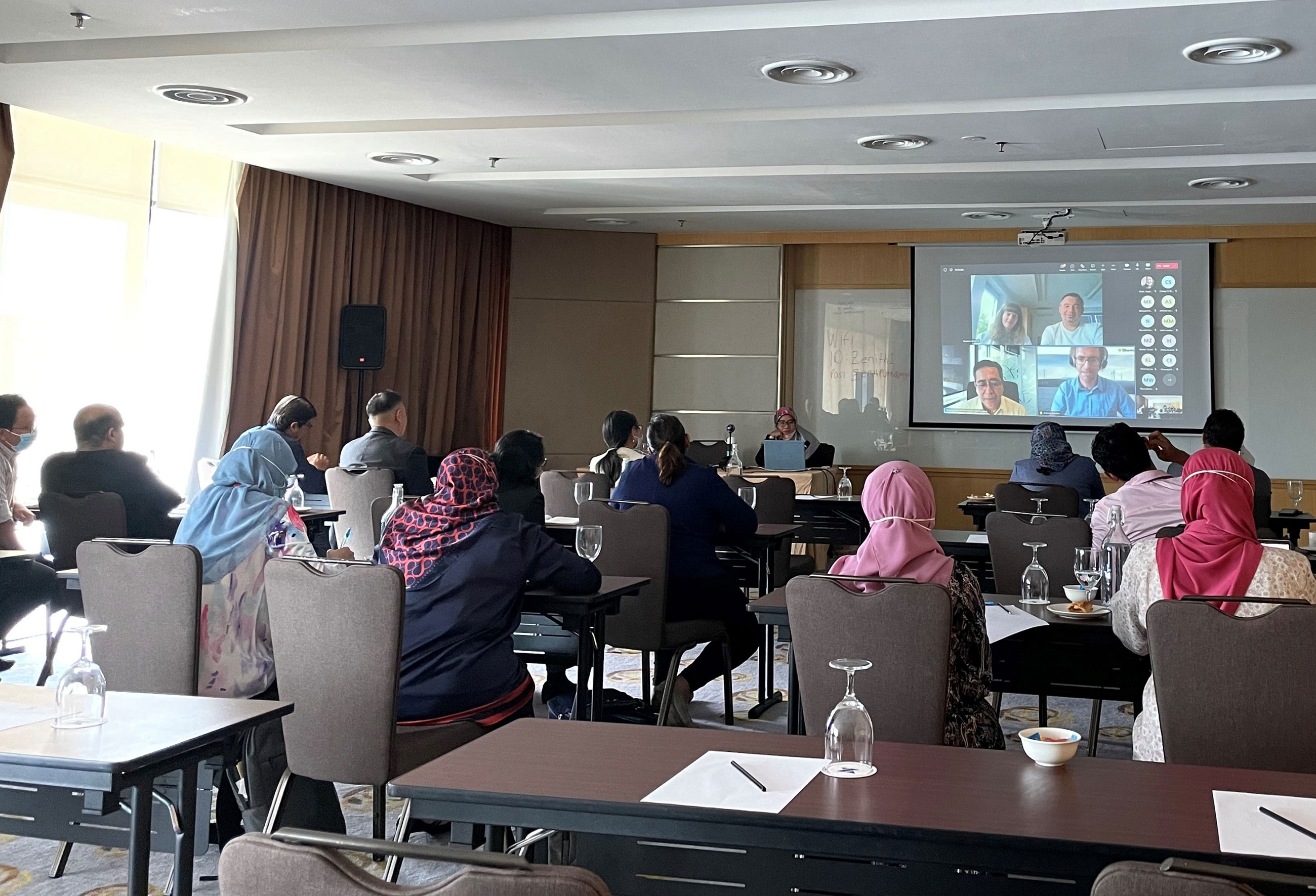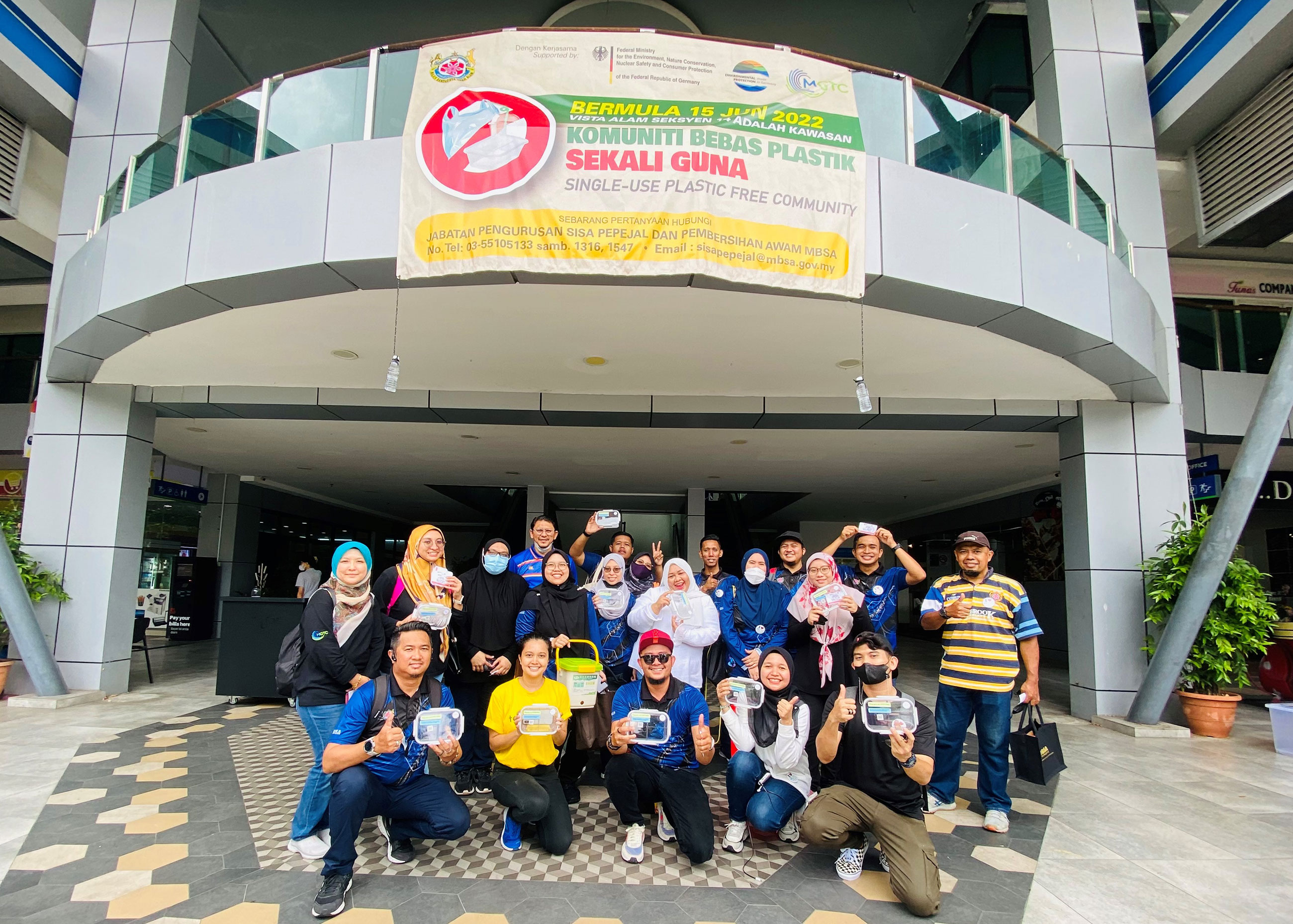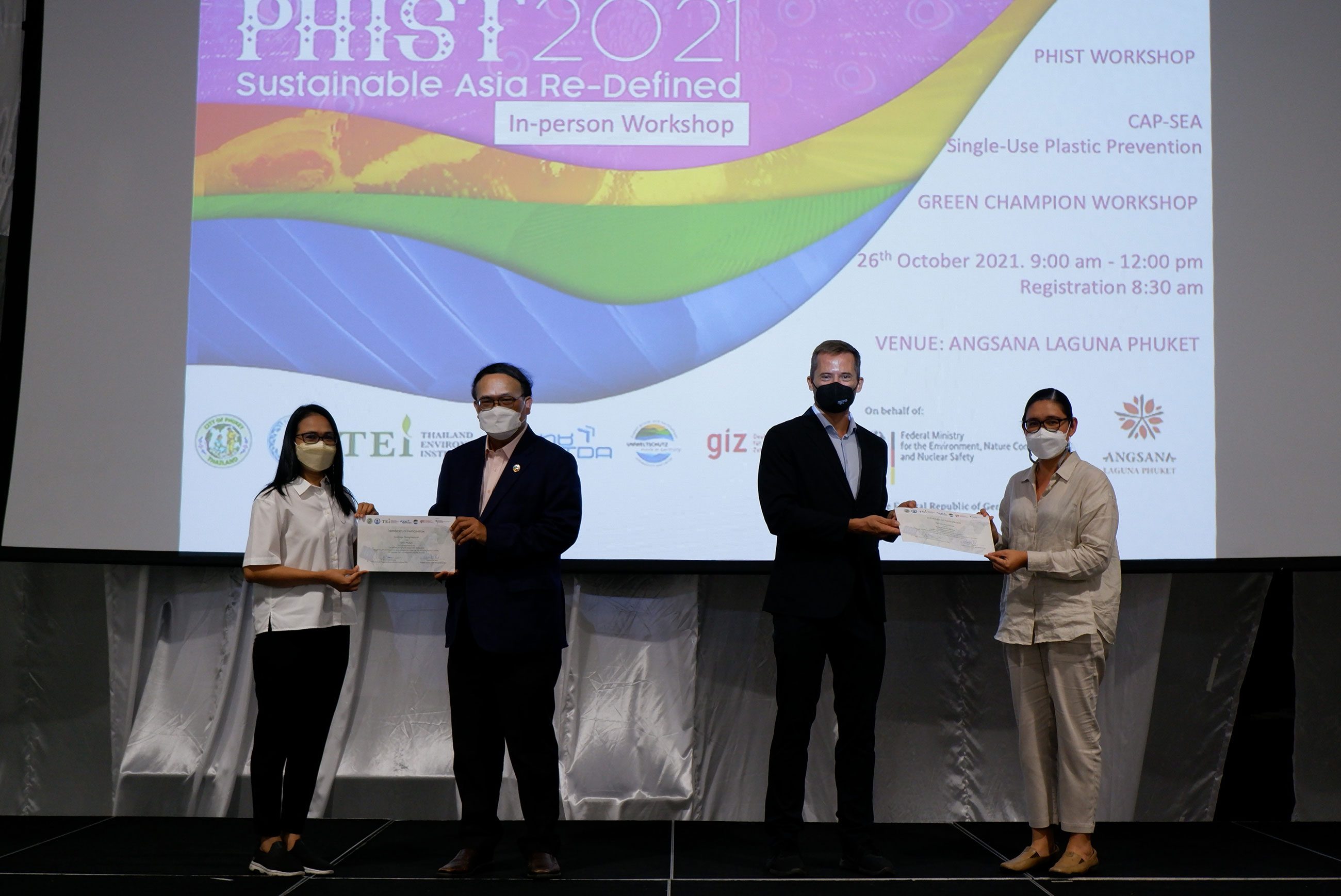“CAP SEA - Collaborative Actions for the Prevention of Single-Use Plastics in South-East Asia” successfully completed in Thailand and Malaysia.

From May 2020 until March 2023, the Collaborative Actions for Single-Use Plastic Prevention in Southeast Asia (CAP SEA) project supported Malaysia and Thailand in developing policies, action plans and private sector initiatives to prevent and reduce single-use plastics and packaging waste.
In Malaysia, CAP SEA has successfully supported the country’s Twelfth Malaysia Plan (2021-2025). Under the political leadership of the Economic Planning Unit (EPU) and in close collaboration with its partners, the Standard and Industrial Research Institute of Malaysia (SIRIM) and the Ministry for Local Housing and Development (KPKT), the project supported policymakers in drafting an Eco-Design policy framework to increase the resource efficiency of products on the Malaysian market. CAP SEA also provided technical advisory training to the policymakers in drafting an Extended Producer Responsibility (EPR) Policy Framework, which will serve as a starting point for further decision-making. The project’s first phase successfully ended with a dissemination event on April 12, 2023, to celebrate the partners and stakeholders involved as well as to spread the knowledge learnt from the project implementation.
Meanwhile, in Thailand, CAP SEA supported the country’s efforts to combat plastic pollution through policy advice and the development of industrial standards. Concretely, it aided the implementation of the C-Pillar of the Bio-Circular-Green Development Model (BCG) through the development of a comprehensive single-use plastic and packaging waste prevention policy recommendation paper. The recommendations have been endorsed by the BCG Circular Economy Subcommittee which reports directly to the Prime Minister.
In order to increase the recyclability of plastic packaging, the project also developed industrial design for recycling standards. In partnership with the Thai Industrial Standardization Institute (TISI) along with Thailand’s National Metal and Materials Technology Center (MTEC), CAP SEA developed three “Design for Recycling Standards” for PET bottles, HDPE containers and PP cups and trays in a multi-stakeholder consultation process involving stakeholders from the whole plastic packaging supply chain. The three standards will be published by TISI as Thai Conformity Assessment Standards in the Royal Government Gazette and will serve as a key reference for the Thai packaging industry in order to make their packaging more recyclable.

Moreover, CAP SEA supported the creation and implementation of single-use plastic action plans through its pilot projects and collaboration with the locals. In Malaysia, it supported the establishment of a single-use (SUP) free community at the Shah Alam City Council (MBSA) building at Vista Alam residential apartment. MBSA has commenced the SUP prevention by reducing their SUP consumption in their own building by getting rid of water bottles during meetings and replacing them with more water dispensers. Plastic food containers and cutlery have been replaced with reusable items. The pilot community of 1,000 units of houses and 30 businesses, including banks and restaurants, are gradually adhering to the circular from MBSA to reduce SUP and apply reuse in their daily activities. Plastic bags are no longer offered as an option in the shops. In addition, restaurants are promoting reuse to residents with the help of MBSA’s circular. Currently, MBSA is expanding their efforts to the local university, Universiti Teknologi Mara, and at school, the Dwi Emas International School to bring greater impacts to the community of Shah Alam.

In Thailand, CAP SEA also supported Phuket Municipality and Province by developing policy recommendations for the governor for the prevention and reduction of single-use plastics. In addition, the project worked with different business sectors in Phuket, such as hotels, shopping centres, restaurants, cafes, and markets, to develop concrete measures and recommendations that each of these business sectors can implement.

Following the success of the first phase, CAP SEA’s second phase recently started in April and will run until March 2025. While CAP SEA will continue to drive Malaysia’s Eco-Design Policy Framework forward and support the further development of an EPR legal framework, CAP SEA 2 will be implemented to support Thailand’s Bangkok Metropolitan Administration in its efforts to reduce single-use plastics.
The project is financed by the German Federal Ministry for the Environment, Nature Conservation, Nuclear Safety and Consumer Protection (BMUV) and is a component of the global project “Export Initiative Environmental Protection”.
All outputs and resources developed by the project can be found here: The Collaborative Actions for Single-Use Plastic Prevention in Southeast Asia (CAP SEA) – German International Cooperation Based in Bangkok (thai-german-cooperation.info)
And on the Greentech Knowledge Platform of the Export Initiative Environmental Projection: https://greentechknowledgehub.de
Christoffer Brick
Project Lead, CAP SEA
Email: christoffer.brick(at)giz.de
Related project news